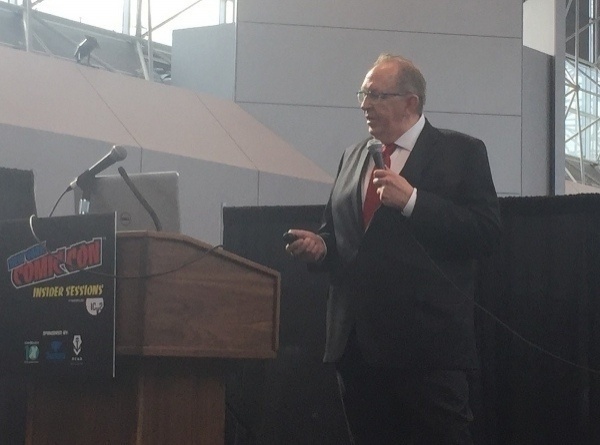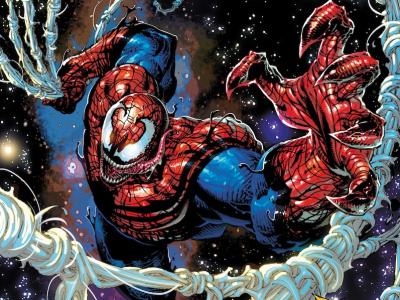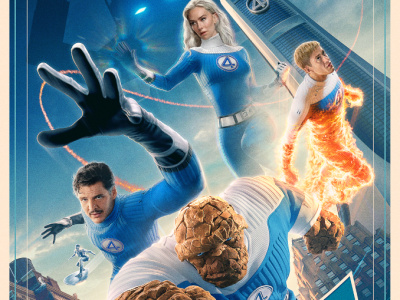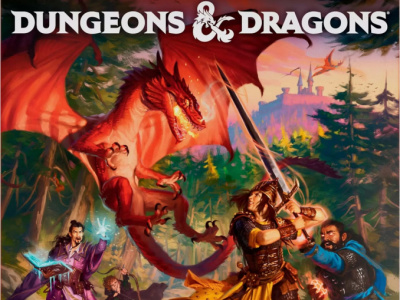The announcement Monday that distribution of new comics to comic stores was being suspended, and that one of the largest hobby game distributors was shutting down, both until further notice (see "Diamond Halting Distribution of New Product, Alliance Shutting Down Completely"), hit me hard. I started in distribution in 1976, and in 1980 co-founded Capital City Distribution, which became a major comic and game distributor, eventually selling out to Diamond in 1996. Throughout that 20-year period, I became attuned to the rhythms of distribution. Whatever happened, whether bad weather, IT problems, transportation issues, market downturns or spikes, new product had to get to stores, and it had to happen every week. When the production of orders for stores was completed each week, the next week’s process started the whole thing up again. That’s now breaking down in spectacular fashion.
Geppi Family Enterprises CEO Steve Geppi’s decision was really driven by the state-wide lockdown orders shutting down non-essential businesses, which although we all think should be otherwise, unfortunately include comic and game stores. Product was getting caught in transit to stores that couldn’t receive it, distribution centers in some states were shutting down with product in transit to them, and the situation was changing so rapidly that adapting transportation networks and other logistics functions to new situations became a near-impossible task. Behind it all, concerns for worker safety are growing.
Other distributors are apparently making other decisions, for now. It appears that the other four of the Big Five game distributors (ACD Distribution, GTS Distribution, PHD Distribution, and Southern Hobby Supply) are still functioning where they can, although by our count nearly half of the 23 distribution centers those companies operate between them are in states under lock-down orders (we hope to have more info on this on Tuesday). In the book business, as of Sunday Ingram said that all of its distribution centers were operating, which may provide another source for graphic novels and RPGs for now.
Unfortunately, the same shutdown orders that are closing comic and game stores and the distributors that serve them are allowing two channels that have been tough competitors for independent retailers to continue to operate: mass merchants that also sell food, such as Walmart, Target, and their brethren, and large online retailers such as Amazon and Walmart. Those channels will have an advantage over independent retailers throughout the coronavirus crisis.
But regardless of what pieces of the distribution network are still limping along, as printers and ultimately publishers find it increasingly difficult to operate, the flow of new product to all stores is likely to dwindle to a trickle.
I haven’t seen good modeling for how we come out of this. There’s a lot of talk about "flattening the curve," essential to avoid crushing the U.S. health care system, but how to loosen things up in ways that avoid new spikes in infections is going to be a difficult path unless there’s a vaccine or a cure, both of which seem to be fairly far off in the future. So we might see cycles of loosening and tightening of social distance rules, as new cases decline, restrictions are loosened, new cases spike, and restrictions are tightened again. Whether we come out of this fast, slow, or choppy, it’s going to require every bit of flexibility, adaptability, and innovation for publishers, distributors, and retailers to navigate 2020 and emerge in a recognizable form.
The big decisions about the future of comic and game stores will be made by the biggest companies, which is where the money is. In the comics business, that’s Marvel, DC, and Diamond; and in the games business, it’s Wizards of the Coast, The Pokemon Company, Konami, Games Workshop and Asmodee. Licensed goods companies like NECA, which owns WizKids, and Funko are also going to play a role, and other large companies like Bandai and Bushiroad will also be important.
All of those companies need to be thinking about how to push cash into the channel, through trade credit, temporary price cuts, other ways to build independent retailer margins, and alleviation of risk through returns or other tools.
There are good reasons to do so. Comic stores remain the channel with the best margins for publishers of books and periodicals, and help build the communities that drive the audiences for those intellectual properties to the movies and TV shows where the real money is made.
For game companies, there is no substitute for the play spaces and teaching of games that game stores provide, and the building of player networks that are essential to the growth of game sales.
Marvel Comics and most of the middle-sized comic companies have already responded with a variety of measures (note the absence of DC Comics, to date), but the largest game companies seem to be a step or two behind. I hope that’s not a measure of their resolve.
The large companies have their own problems, of course: their sales are tanking, their expenses aren’t going down as fast, and for public companies, their valuations are getting hammered. But we urge them to think about the long run and the value that comes from the thousands of independent retailers that have built their businesses. It’s going to take a herculean effort to rebuild from this crisis, and the largest companies are going to have to step up or watch their concentration of sales in a small handful of mass merchants, specialty retail chains, and Amazon accelerate even as the heart of their market disappears along with the stores that serve them.
I’m also going to ask all of you to support ICv2 as you think about the future. We’re going to continue to publish news and opinion for retailers and others in the business of geek culture, and hope you continue to frequent our site, email newsletter, and social media feeds.
For publishers and other advertisers, we can support you as we rebuild together; please advertise with us as your new releases start to flow again.
For all our readers, please maintain or begin ICv2 Pro subscriptions, which will be an important source of revenue as most of our ad revenue pauses along with new product releases.
I have a lot of confidence in the future of the products of geek culture, and in the passionate audience for them. The parts in between are going to take some work.
Stay safe.
(Kudos to former DC Publisher Paul Levitz, who first sounded an early call to action over a week ago in the comics space, see "Suggestions for Comic Publishers and Retailers on the Coronavirus Pandemic.")
Milton Griepp is the founder and CEO of ICv2, and long-time executive in the geek culture business. The opinions expressed in this column are solely those of the writer.
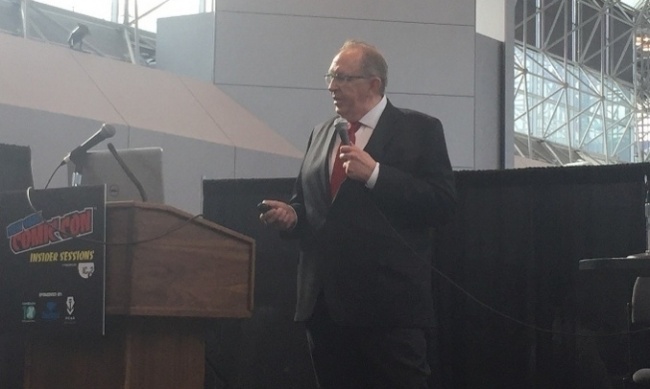
Column by Milton Griepp
Posted by Milton Griepp on March 24, 2020 @ 3:47 am CT
MORE COMICS
'Venom' #252 to Feature Backup Story with New Suit, Plus New Story by DeFalco and Frenz
August 4, 2025
Venom #252 will feature a backup story about Venom’s new suit as well as a backup story by Tom DeFalco and Ron Frenz, the creators of the symbiote suit.
Showbiz Round-Up
August 4, 2025
The post-SDCC showbiz news is still spicy a week after the show's conclusion. It's time for another round-up!
MORE COLUMNS
Column by Scott Thorne
August 4, 2025
This week, Scott Thorne addresses some comments on last week's column and the right price for starter products.
Column by Scott Thorne
July 28, 2025
This week, columnist Scott Thorne comments on the Edge of Eternities prerelease and on Magic: The Gathering news from the Hasbro earnings report.



